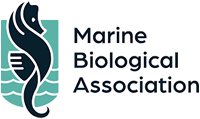The Marine Biological Association (MBA) invites applications for a PhD Studentship working within the OCEAN DEOXYFISH project (Ocean deoxygenation effects on threatened top predators: New understanding and predictions from novel bio-logging instruments and data). OCEAN DEOXYFISH is a European Research Council (ERC) Advanced Grant (€3.11M) award to Prof David Sims, an MBA Senior Research Fellow and Professor at the University of Southampton who leads the Ocean Predator Movement Ecology and Conservation Group.
The PhD Studentship offers the opportunity to work on a high-profile international project under the guidance of a leading research team from six countries (UK, Portugal, Cabo Verde, Ireland, Australia, Japan) and linking with the Global Shark Movement Project (www.globalsharkmovement.org), a research collaboration of 150 scientists from 26 countries. The successful candidate will be based at the MBA Laboratory in Plymouth, UK, with fieldwork at sea in the UK, Portugal and other locations.
The supervisory team includes Prof David Sims (MBA/University of Southampton), Dr Martina Stiasny (University of Southampton) and Dr Nuno Queiroz (CIBIO/Universidade do Porto) and members of the OCEAN DEOXYFISH team. The successful candidate will be registered at the University of Southampton in the Graduate School of the National Oceanography Centre Southampton (GSNOCS). The University of Southampton is a member of the Russell Group and ranked in the world’s top 100 Universities.
The OCEAN DEOXYFISH Project
OCEAN DEOXYFISH focuses on understanding the effects of ocean deoxygenation on marine top predators. Climate-driven reductions in dissolved oxygen (DO) of the global ocean interior (ocean deoxygenation) is leading to expansion of permanent oxygen minimum zones (OMZ) that comprise about 7% of ocean volume. Impacts on marine animal distributions and abundance may be particularly significant for high-oxygen-demand top predators, such as warm-bodied tunas and sharks, by reducing habitat volumes as OMZs expand (habitat compression) and concentrating fish further in surface waters where they become more vulnerable to fisheries. But predictions of how exploited oceanic fish actually respond to OMZ expansions are not based on mechanistic understandings, principally because direct measurements of oxygen tolerances and associated metabolic costs have not been determined. OCEAN DEOXYFISH will bring about a step change in understanding of OMZ impacts on oceanic ecology by applying the research team’s existing expertise in animal movement studies and by developing new biologging technologies and in situ physiology for measuring oxygen tolerances and metabolism directly in free-living fish.
OCEAN DEOXYFISH will enable major unknowns to be addressed concerning how oceanic fish respond physiologically and behaviourally to hypoxia, the role of OMZs in upper-trophic-level ecology, how oceanic fish habitats change with predicted OMZ expansion, and whether this will increase fish vulnerability to fishing gear. Objectives will be achieved through linked field, experimental and modelling studies. By focusing on key processes underlying fish responses to DO in situ, new modelling approaches will establish effects of future warming and OMZ shoaling on fish niches and determine how these shift distributions and alter capture risk by fisheries. The project represents a discipline-spanning approach linking physiology to ecology and oceanography, with wide-ranging outcomes for understanding global biotic responses to warming and ocean deoxygenation with direct relevance to sustainable fisheries and species conservation.
PhD Studentship details
Physiological ecology asks how organisms survive in their environments and of particular interest is how animals survive in extreme environments. The aim of the PhD will be to understand how climate-driven deoxygenating environments affect the short and long-term physiological and behavioural responses of sharks. The research will use newly developed bio-logging tags, in situ physiology and respirometry to explore the physiological and behavioural responses of pelagic sharks in low DO environments. Key questions include: what are the tolerance limits of pelagic sharks to low DO? How long can they remain in lower DO environments? What behavioural and physiological mechanisms do they use? Do interactions with low DO waters surrounding OMZs impact net energy gain?
Proposed objectives of the PhD research are to (1) quantify oxygen consumption rates of pelagic sharks using respirometry methods, (2) determine behavioural and physiological responses of sharks to low DO, (3) explore potential physiological mechanisms of hypoxia tolerance using newly developed oxygen-sensing bio-logging tags, and (4) estimate energy budgets of sharks utilising waters above OMZs to support the first field tests of the habitat trap hypothesis. The successful candidate will be encouraged and supported to pursue these and related questions within the framework of the OCEAN DEOXYFISH project. The research will involve the use of new biologging tools (DO sensing tags) and large respirometers.
Essential requirements for the studentship would ideally include knowledge and prior experience of shark physiology and behavioural research, knowledge of bio-logging technologies and respirometry and their applications in animal physiological ecology, experience in statistical analysis, environmental modelling, and the ability to work with large bio-logging and environmental datasets. Programming skills (e.g. R, C#) would also be desirable. All necessary training will be provided by the supervisory team and the 16-member OCEAN DEOXYFISH research team.
Equal Opportunities
We are committed to equality of opportunity and applications from individuals are encouraged regardless of age, disability, sex, gender reassignment, sexual orientation, pregnancy and maternity, race, religion or belief and marriage and civil partnerships.
How to Apply:
To apply please send a covering letter and full CV with details of 2 academic referees to [Email Address Removed]
The covering letter should:
- outline your previous and most relevant experience
- explain why you are right for this PhD project
Please also submit evidence of proficiency in English if English is not your first language.
Closing date: 16th June 2023
Interviews will take place the week of 3rd July 2023
Applicants must be eligible to live and work in the UK

 Continue with Facebook
Continue with Facebook



